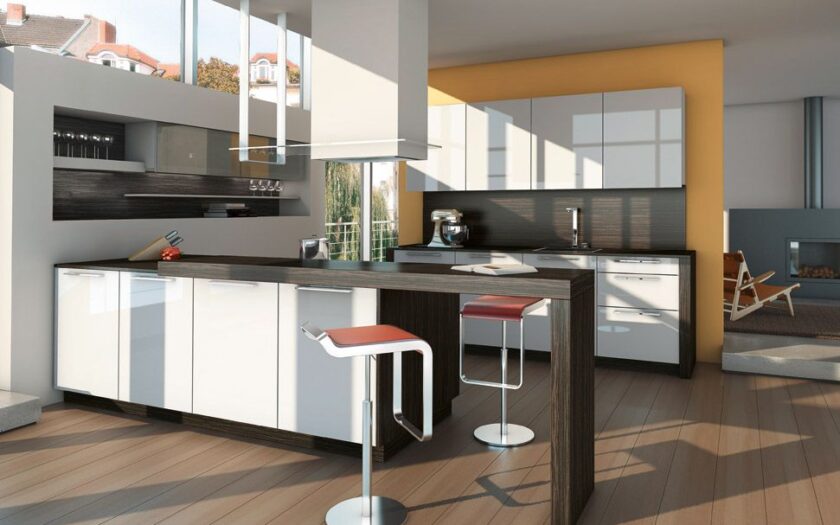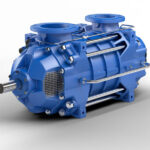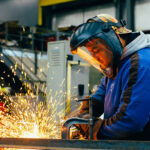Introduction: The Integration of AI into Modern Kitchens
In today’s rapidly evolving tech landscape, Artificial Intelligence (AI) has emerged as a transformative force in numerous industries, and the realm of home design is no exception. Kitchens, traditionally seen as the center of the home, are undergoing a profound transformation with the integration of AI technologies. This article explores how AI is revolutionizing kitchen design, making these spaces more functional, safe, and personalized while adhering to the principles of sustainability and efficiency.
Personalized Design Solutions
AI’s first major impact on kitchen design is its ability to tailor spaces to the individual needs of users. Advanced algorithms can analyze vast amounts of data regarding a user’s cooking habits, storage needs, and aesthetic preferences. This data-driven approach allows for the creation of highly customized kitchen layouts and designs that enhance user experience and functionality. For example, AI-driven platforms can suggest an optimal layout that reduces unnecessary movement and ensures the most used items are easily accessible, thus creating a seamless cooking environment.
Smart Appliances and Functionality
The core of an AI-enhanced kitchen is smart appliances that increase the efficiency and enjoyment of culinary tasks. AI refrigerators can monitor food inventories, suggest recipes based on leftovers, and even order groceries online when supplies run low. Smart ovens adjust cooking temperatures and times for optimal results, learning from each use to improve their accuracy. Even dishwashers are getting smarter, optimizing water usage and cycle settings based on how dirty the dishes are, thus contributing to significant energy savings.
Space Optimization and Efficiency
In urban environments where space is at a premium, AI can play a pivotal role in maximizing kitchen efficiency. Through detailed spatial analysis, AI can recommend arrangements that make the best use of available space, integrating foldable or multi-purpose appliances and fixtures. Moreover, AI can control smart storage solutions that adjust shelves and compartments dynamically based on the items stored, reducing clutter and improving organization.
Enhancing Safety with AI Technology
AI Kitchen Design for Free technologies also significantly enhance kitchen safety. Equipped with sensors and AI algorithms, cooktops and ovens can now detect overheating or unattended pots and turn themselves off to prevent fires. Leak sensors and AI-driven water control systems can prevent major water damage by detecting leaks early and shutting off water supply if a risk is detected. These intelligent systems not only prevent accidents but also give homeowners peace of mind, knowing their kitchens are equipped to handle potential hazards autonomously.
Sustainable Practices and Energy Management
Sustainability is another crucial benefit of AI in kitchen design. AI systems optimize energy consumption by learning usage patterns and adjusting the operation of appliances and lighting accordingly. For instance, an AI system can manage the operation of refrigerators and dishwashers during off-peak energy hours to reduce electricity costs and lessen the burden on the power grid. This smart energy management not only reduces the household’s carbon footprint but also aligns with global efforts to promote environmental sustainability.
Interactive Cooking and Learning
Perhaps one of the most exciting prospects of AI in kitchen design is its potential to transform cooking into an interactive and educational experience. AI-powered assistants can guide users through recipes, offering tips and modifications based on dietary preferences and past cooking results. These assistants can also teach cooking techniques, suggest culinary experiments, and even provide real-time support, making cooking more accessible to novices and more enjoyable for culinary enthusiasts.
Data Security and User Privacy
With the increasing integration of AI into kitchens, data security and privacy concerns are more pertinent than ever. Ensuring the confidentiality and security of user data is paramount. Reputable AI kitchen design providers must adhere to strict data protection regulations, use encryption, and allow users to control their data to build trust and ensure the safe use of AI technologies in the home.
The Future of Kitchen Design
Looking ahead, the potential for AI in kitchen design is boundless. We are on the cusp of seeing even more advanced integrations, such as augmented reality (AR) for visualizing and planning kitchen spaces, and deeper IoT connectivity that seamlessly links every appliance and device in the kitchen ecosystem. The future kitchen will not only be a place for meal preparation but a multifunctional hub equipped with technology that anticipates needs, simplifies tasks, and conserves resources.
A New Era for Kitchens
As AI continues to evolve, its application in kitchen design is set to become more profound and ubiquitous. These intelligent systems will further personalize kitchen environments, making them even more in tune with the needs and desires of their users. With AI, the kitchen of the future will not only serve as a center for cooking but also become a pivotal space where technology and functionality converge to create innovative and sustainable living solutions. The AI-powered kitchen is not just a trend; it is the future of home design, where convenience, safety, and sustainability are not just envisioned but realized.






